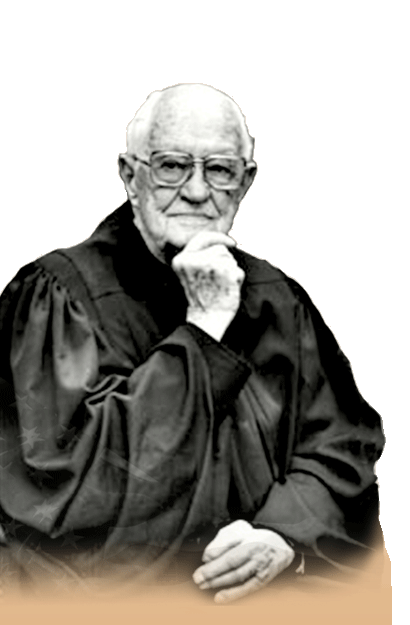 |
 |
 |
 |


| ||||||
|
Known as one of the liberal jurists of the U. S. Court of Appeals "Fifth Circuit Four," Judge Elbert Tuttle made a series of rulings that advanced the struggle for social change. President Dwight Eisenhower appointed Tuttle to the bench right before the U.S. Supreme Court's 1954 Brown v. the Board of Education decision prohibiting school segregation. Tuttle was appointed Chief Justice of the Fifth Circuit Court of Appeals in 1961 and boldly carried out his mission to uphold federal desegregation mandates with the help of fellow progressive judges of the Fifth Circuit John Minor Wisdom, John Brown, and Richard Rives. In the early 1960s, Tuttle ruled that Martin Luther King Jr. and other leaders could conduct civil rights meetings and demonstrations in Albany, Ga., and that James Meredith could be admitted to the University of Mississippi. In the mid 1960s, Judge Tuttle granted Julian Bond's request to be seated in the House of Representatives after white state legislators twice refused to seat him because of his anti-Vietnam stance. A number of Tuttle's decisions concerning the county unit system and congressional-district reapportionment strengthened black voting rights. In 1906, nine-year-old Elbert Tuttle moved with his family to Hawaii. There his father Guy Harmon Tuttle, worked as bookkeeper on a sugar plantation. Elbert attended a racially diverse school in Honolulu. He entered Cornell University in New York in 1914. He joined the Army in 1918 during World War I and would later serve as a highly decorated lieutenant colonel in World War II. Tuttle financed his law school education at Cornell through a series of jobs as a newspaper reporter. He married Sara Sutherland in 1919. After graduating from law school in 1923, he moved to Atlanta, Georgia, where he opened a law firm with his brother-in-law William Sutherland. Even then, he took on civil rights cases pro bono and worked on cases championed by the American Civil Liberties Union. In 1953, a year before his appointment to the Fifth Circuit Court of Appeals, President Eisenhower appointed him general counsel and head of the legal division of the U.S. Treasury Department. Though Judge Tuttle went into semi retirement from the bench in 1968, he was appointed to the U.S. Court of Appeals for the Eleventh Circuit in 1981. That same year, he received the Presidential Medal of Freedom. |